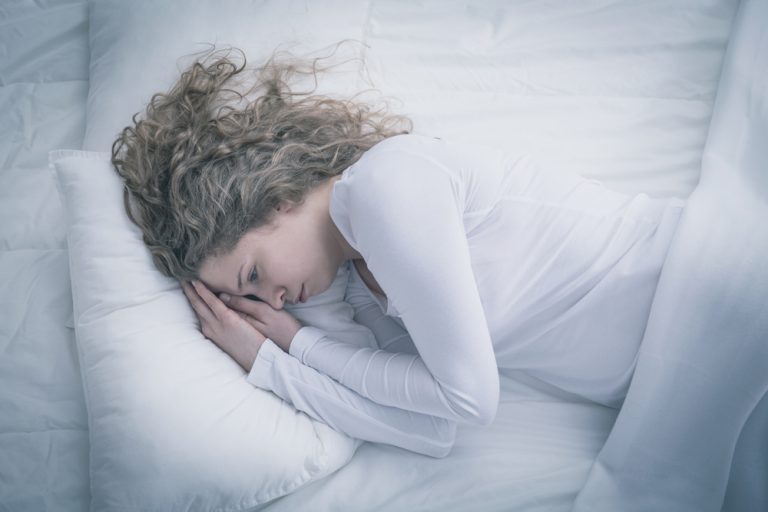Life has a way of throwing us curveballs, unexpected events that shake us to our core. For some, these experiences leave behind wounds we can’t see but deeply feel, known as Post-Traumatic Stress Disorder (PTSD). Whether it’s the result of an accident, violence, or a personal loss, PTSD doesn’t discriminate. However, how it shows up in our lives can differ between men and women.
For women, trauma often stems from experiences like domestic violence or sexual assault. For men, it might come from military combat, workplace accidents, or physical violence. Although these occurrences are not inherently gender-specific, they are reportedly more common for certain demographics. The mind and body’s reaction to these event manifests differently in men and women because of their biological and social differences.
The good news? PTSD isn’t a life sentence. It’s a condition that can be managed and treated with the right help. At PsychPlus, we’re here to guide you toward understanding and recovery. Whether you or someone you love is struggling, there’s a way forward, and you don’t have to face it alone.
What Is PTSD?
PTSD, or Post-Traumatic Stress Disorder, is a mental health condition triggered by experiencing or witnessing a traumatic event. This could include anything from a car accident or natural disaster to violence, military combat, or personal assault. While it’s natural to feel shaken after such events, people with PTSD often find the memories linger, sometimes resurfacing as vivid flashbacks, nightmares, or overwhelming anxiety.
PTSD is more common than many realize, affecting millions of men and women worldwide. Despite its prevalence, it often goes untreated because people may dismiss their symptoms or feel hesitant to seek help. However, addressing PTSD early can significantly improve mental and emotional well-being, allowing individuals to regain control of their lives.
If you’re looking for expert support, visit the PsychPlus Homepage. Our compassionate professionals are ready to help you on your journey to recovery.
PTSD in Women
For many women, trauma often stems from deeply personal and distressing experiences like sexual assault, domestic violence, or childhood abuse. These events can leave lasting emotional scars that may develop into PTSD. In fact, women are statistically more likely than men to experience certain types of trauma, which contributes to a higher prevalence of PTSD among women. This does not mean there are no male victims, just that women are more commonly targeted and reported.
When PTSD takes hold, it often presents as emotional numbness, heightened anxiety, or a constant state of hypervigilance. Many women with PTSD find themselves avoiding people, places, or situations that could remind them of their trauma. These symptoms can make it challenging to feel safe, trust others, or fully engage in daily life.
Adding to this challenge are societal expectations that often pressure women to “stay strong” or prioritize others over their own mental health. This can lead to many women suppressing their symptoms, delaying much-needed help. However, recognizing these struggles is the first step toward healing—and there’s no shame in seeking support.
With tailored care and understanding, recovery is absolutely possible. If you’re ready to start that journey, the compassionate team at PsychPlus is here to help.
PTSD in Men
For men, PTSD often wears a different face. While the core symptoms, like flashbacks and heightened anxiety, are similar, men may express their struggles in ways that are sometimes misunderstood. Many turn to risk-taking behaviors, aggression, or even substance use as coping mechanisms to mask their pain. This can create a cycle where the trauma isn’t addressed, and the behaviors compound the problem.
One of the biggest barriers for men seeking help is the stigma around vulnerability. Society often sends the message that men should “tough it out” or “deal with it on their own.” As a result, many men hesitate to acknowledge their struggles, fearing judgment or rejection. Unfortunately, this can delay treatment and make the road to recovery more challenging.
For veterans, male and female, PTSD can be an even more complex battle. The trauma of combat or military service adds unique layers to their experiences. If this resonates, check out our blog on For Veterans, Mental Health to learn more about addressing these challenges.
Remember, seeking help isn’t a sign of weakness, it’s a step toward strength and healing. Whether you’re dealing with PTSD yourself or supporting a loved one, the path to recovery is always within reach.
Similarities in PTSD Symptoms Across Genders
While men and women may experience PTSD differently, the core symptoms often overlap, painting a picture of the universal struggles that come with trauma. Both men and women with PTSD commonly face flashbacks—intense, vivid relivings of the traumatic event that can feel as real as when it first occurred. Nightmares, another hallmark symptom, disrupt sleep and leave individuals feeling drained and uneasy.
Concentration can also become a challenge, as the mind remains preoccupied with the trauma, making it hard to stay focused on everyday tasks. Emotional responses such as irritability, guilt, or feelings of detachment are also common, regardless of gender.
While the specific triggers that bring on these symptoms might differ, the emotional toll is often the same. Understanding these shared experiences can foster greater empathy and remind us that no one is truly alone in their struggle with PTSD.
Healing is possible for everyone, and recognizing these shared challenges is a step toward recovery and connection.
How PTSD Impacts Sleep and Daily Life
One of the most disruptive effects of PTSD is its impact on sleep. For many, insomnia becomes a nightly battle, either struggling to fall asleep or waking up multiple times throughout the night, unable to return to rest. Nightmares are another common issue, often vivid and distressing, causing individuals to relive their trauma even while they sleep. This poor sleep quality can lead to daytime fatigue, difficulty concentrating, and even increased irritability.
But it’s not just about sleep deprivation; PTSD also makes everyday life harder to navigate. People may feel on edge, constantly alert to potential threats, which can make simple tasks feel overwhelming. Whether it’s going to work, socializing with friends, or spending time with family, PTSD can create a barrier that makes connecting with others and performing daily activities feel nearly impossible.
For those experiencing disturbances related to sleep, PTSD might even overlap with conditions like sleepwalking. If you’re interested in understanding more about how sleep disturbances can affect your life, check out our related blog on Sleepwalking Disorder.
Remember, addressing these sleep issues and daily struggles is an essential part of the healing process. Getting the right support can make a world of difference in restoring balance to your life
Treatment Options for PTSD
The good news about PTSD is that it’s treatable. With the right support and treatment, people can regain control of their lives and find healing. There are several evidence-based approaches available, including therapy, medication, and holistic treatments—each offering a unique path toward recovery.
Here are some common treatment options:
- Cognitive Behavioral Therapy (CBT): Helps individuals identify and change negative thought patterns that contribute to PTSD. It’s one of the most widely used therapies for PTSD.
- Medications: Often prescribed to manage symptoms like anxiety, depression, or sleep disturbances. Antidepressants or anti-anxiety medications are commonly used in combination with therapy.
- Holistic Approaches: Techniques such as mindfulness, yoga, meditation, or acupuncture can help reduce stress and improve emotional well-being by encouraging relaxation and grounding.
Each treatment plan should be personalized to fit the unique needs of the individual, taking into account the specific gender-related experiences that may shape the PTSD journey. What works for one person may not be the best fit for someone else, which is why a tailored approach is crucial.
If you or someone you love is ready to take the first step toward healing, we encourage you to reach out for professional help. At PsychPlus, we specialize in creating personalized treatment plans designed to help you heal and move forward. Book an Appointment with us today. We’re here to support you every step of the way.
Breaking the Stigma
One of the biggest barriers to healing from PTSD is the stigma surrounding mental health. Too often, people are reluctant to speak up about their struggles because they fear judgment, misunderstanding, or a lack of support. It’s essential to create a safe, open dialogue about PTSD—where both men and women feel comfortable acknowledging their experiences and seeking help.
If you know someone who’s struggling with PTSD, the best thing you can do is offer your understanding and compassion. Be informed about the condition, listen without judgment, and encourage them to seek professional help when needed. Your support can be the turning point in their healing journey.
Conclusion
Understanding PTSD is key to offering effective support, especially when we consider how experiences shape men and women differently. Both men and women face unique challenges, but the core struggles with trauma are universal. Whether it’s emotional numbness, hypervigilance, or nightmares, the impact of PTSD can be overwhelming, but recovery is always possible.
Help is available, and PsychPlus is here to offer that support through personalized care and tailored treatment plans. Don’t hesitate to reach out for professional guidance on your path to healing.
For more insights on mental health topics, visit our Blog Page. We’re here to help you every step of the way.





